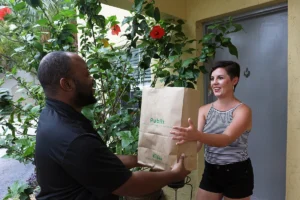Why We Never Save Enough
Let’s skip the textbook fluff and start with a dose of reality. Have you ever checked your bank account right after payday, felt a little proud… and then a week later, you’re wondering where it all went? Same. I used to pat myself on the back for transferring a few bucks to savings—only to dip right back into it for that unexpected “emergency” (which, let’s be honest, was usually something like “my dog needs new toys” or “those shoes are on sale”).
If this sounds familiar, you’re not alone. Dave Ramsey Chapter 3, LESSON 1 basically calls us all out—but in the kindest, most big-brother way possible. Turns out, the real reason we struggle to save is not laziness, but habits stacked against us. There’s a whole world out there with countries living by totally different scripts. Like, did you know Japan’s average saving rate is around 20%, while in the U.S. it floats around 5.2%? (I promise, it’s not because the Japanese hate lattes.) If you’re curious, there’s some research on spending habits across countries worth a glance.
But it’s more than just numbers—we’re talking about how you, me, and our neighbors view money, emergencies, and “wants.” Let’s dig into where it all goes sideways… and how we can actually start saving money without feeling miserable.
Why “Just Save More” Sounds So Easy
But Why Is It So Hard to Start?
Here’s where Dave Ramsey’s “the first foundation is: save” advice hits home. When I first heard it, I almost rolled my eyes… “Save $500 for emergencies.” That’s it? Really? Try telling that to someone with rent due or a car on its last leg. But (and here’s where I swallow my pride)—starting small changed my whole relationship with money. It made “savings” feel doable, not like some mythical quest for millionaires.
The magic is in making sure that emergency fund money is off limits. It’s not “Netflix subscription ran a little long” money… it’s “my tire blew out” money. And when you actually let it sit there (untouched!), crazy things happen: you worry less. You start to feel… secure? Even a little powerful. It’s wild.
My Not-So-Perfect Saving Start
True story: the first time I tried this, it took me four months to scrape up $500. Bottle returns, weird side gigs, skipping fancy coffees. Did skipping them hurt? Kind of. Did seeing that account grow—no matter how slowly—make me stand taller? Absolutely. I wish someone had handed me Dave Ramsey Chapter 3, LESSON 1 years earlier.
Are You Accidentally Letting Money Leak Out?
Where Is It Actually Going?
Let’s play a quick game: Think about the last five things you bought. Was any of it an impulse buy? Be honest… Mine was a $7 matcha I didn’t even finish. Point is, most of us don’t lose our savings from one huge splurge—it’s the little leaks that really sink us.
Sometimes, it’s just life. But other times, the culprit is that tiny voice that says, “You’ll make up for it next paycheck.” Spoiler: Next paycheck always has its own surprises.
What the World Teaches Us About Saving
Let’s peek at how folks in other places do it. Check out this super-simple table:
| Country/Region | Average Savings Rate | What’s Different? |
|---|---|---|
| Japan | 20% | Saving is a cultural expectation—almost like a rite of passage. |
| Europe | 5.5% | Steady, disciplined (but not stingy). |
| U.S. | 5.2% | Lots of “treat yourself”—and easy access to credit. |
Have you ever thought about how your habits line up? Try tracking your own “leaks” this week. See if you can spot a pattern—the same as I did with my epic coffee habit (which, by the way, morphed into my actual emergency fund over a few months).
Those Sneaky Credit Card Surprises
Ever Wondered What Happens If You Miss a Payment?
This is where things get real, real quick. Most of us just think, “Meh, I’ll pay it next week.” But if you make a late credit payment, you might see the lender add a gnarly fee (or three) to your bill. And interest might spike, and if that wasn’t enough—your credit score gets dinged. Yep, all from forgetting for a few days.
I learned this the hard way with… you guessed it… a speeding ticket I totally forgot about. One missed payment later, I owed way more than the original bill, spent hours on the phone, and felt sick about it for weeks. If only I’d listened to Dave Ramsey Chapter 3, LESSON 1 earlier.
Why That Emergency Fund Really Matters
Late payments are why “the first foundation is: save” matters so much. Suddenly, the $500 you have set aside isn’t just a buffer for tires or doctor bills—it’s your buffer from all the bullshit (sorry, not sorry) those sneaky fees throw your way.
| Expense | Damage |
| Late fee | $30–$40 (ouch) |
| Interest jump | Up to 29% APR (gulp) |
| Credit drop | 100+ points (yikes) |
So yeah, late payments can avalanche—and you won’t see it coming.
But Saving Is Boring! Or Is It?
How Can We Make It Stick… Without Hating Life?
You might be thinking, “Okay, fine, but counting pennies isn’t exactly thrilling.” I get it. I’m not about to tell you to stop all fun spending (who does that?). The trick is nudging your habits… just enough to see a difference.
Dave Ramsey’s big mood in Chapter 3, LESSON 1 is: Build the habit small, keep it automatic, and protect it like a dragon guards treasure. Seriously, the first foundation is: save—so give that fund a name, a wall, whatever keeps it “hands off.”
My “Oops” Turned Win
I once blew my grocery budget on takeout—then sulked for days over how dumb I felt. Instead of wallowing, I started meal-planning with whatever I had left in the pantry. Guess what? Two weeks of weird dinners later, my savings took a big jump, and the world didn’t end. Sometimes, frugal stumbles end up as savings wins (seriously—try your “pantry challenge” sometime when cash is tight).
The Ramsey Quiz (And Why It’s Not Just for Teens)
Ready for a Gut-Check?
If you want to see how you’re doing with this whole saving thing, take a peek at the Ramsey classroom chapter 3 post test. It’s not just about right or wrong—it’ll jog your brain about what you’d do in a money pinch, and how tight your “protect the savings” game really is.
For example, did you know that after you hit that $500 emergency fund, you don’t immediately dive into investing? Ramsey urges you to protect the fund until you actually need it—and that takes some willpower (or stubbornness). If you’re super curious—like me—about what comes next, you’ll want to know: what is the fourth foundation of the dave ramsey course? (Hint: just don’t skip steps.)
Let’s Get Real: One Small Habit at a Time
Budget Tweaking… Without Tears
Want to actually see your savings climb? Don’t try to overhaul everything in a weekend—that’s just setting up for a crash. Instead, pick one thing. Here are a few tweaks that helped me, and maybe they’ll spark something for you too:
| Category | Frugal Tip | Monthly Save Potential |
|---|---|---|
| Groceries | Make a weekly meal plan, buy only what’s on the list | $50–$100 |
| Entertainment | Swap a streaming service for library audiobooks one month | $15–$20 |
| Transportation | Walk or bike short trips, skip one Uber a week | $20–$40 |
That’s potentially $100-$160 without feeling like you’re living on dust. And if you slip up or overspend? Meh. Start fresh tomorrow. It’s about progress, not perfection.
Your Turn: Try a “No-Spend” Day
Pick one day this week—just ONE—where you only spend on true essentials. I do this on Wednesdays, and it’s now a game… can I out-save myself from last time? Sounds silly, but it totally changes how you look at your “needs.” Plus, your savings account will thank you (maybe buy you an ice cream, if ice cream were a person).
So, What’s Next?
Let’s be real: none of us is perfect at this. I’ve stumbled, face-planted, heck—practically invented new ways to derail my budget. But here’s what I’ve learned (and what Dave Ramsey Chapter 3, LESSON 1 tattooed on my brain): Build your savings from the ground up, protect it with your life, and don’t let a little mess-up stop your progress.
Start with your $500 fund—it’s the cornerstone. If you blow it, just rebuild (trust me, you will rebuild faster each time). Watch out for those sneaky late payments—the if you make a late credit payment, you might see the lender add trap is real, and it’s a budget killer. Check in on your own habits, maybe take the Ramsey classroom chapter 3 post test, see what habits you spot. And if you’re getting the itch to sprint forward (“so… what is the fourth foundation of the dave ramsey course?”), remember: You’ve got this. One step at a time.
Here’s my nudge before you close the tab: Try tracking one week of your spending, no guilt—just observation. Sift through it, pick one tweak, and start your savings fund (tiny is fine). Share your first save story with a friend—or hey, even with me. We can all cheer each other on (poms-poms optional).
You aren’t in this alone. Saving isn’t boring; it’s building your peace of mind, one not-so-glamorous step at a time… and I’m cheering for you. Ready to see what your next chapter looks like? Let’s do it—together.













